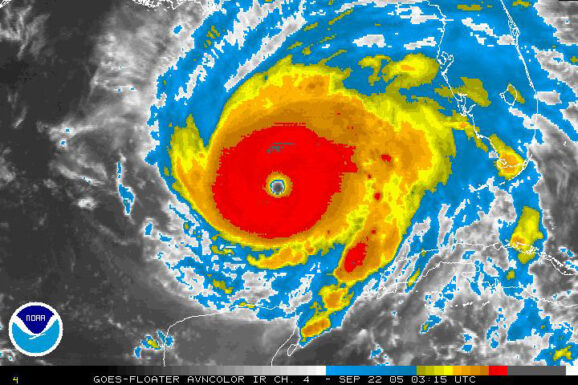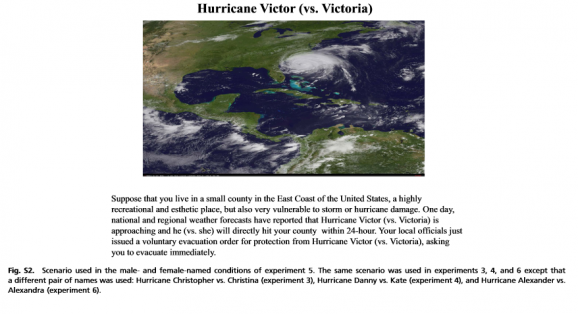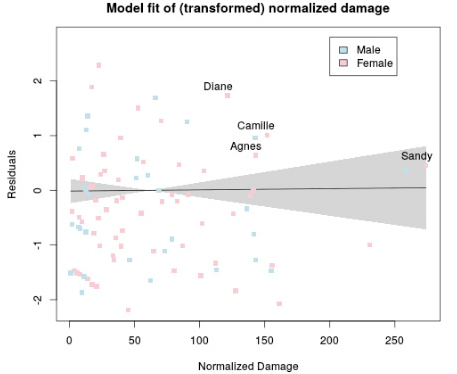Do The Names Of Hurricanes Dictate Their Death Tolls?
This article is more than 2 years old
 A controversial new study recently published in the Proceedings of the National Academy of Sciences finds that hurricanes with female names are more deadly than hurricanes with male names because people take them less seriously.
A controversial new study recently published in the Proceedings of the National Academy of Sciences finds that hurricanes with female names are more deadly than hurricanes with male names because people take them less seriously.
The finding simply seems too silly to be true, especially when you think of the most deadly hurricanes in recent U.S. history, but hurricanes Katrina and Audrey were excluded from the study, given their off-the-charts size and devastation. The University of Illinois and Arizona State University researchers examined hurricane deaths between 1950-2012 (meteorologists started naming hurricanes in 1950, and used only female names until 1979). During those 62 years, the researchers identified the 47 most damaging storms, and of those deduced that the ones with female names resulted in an average of 45 deaths, while the ones with male names had half as many — 23 on average. “[Our] model suggests that changing a severe hurricane’s name from Charley … to Eloise … could nearly triple its death toll,” the study says. According to the study, the degree of femininity or masculinity in the name also had an effect.

The researchers believe that there’s an “implicit sexism” when it comes to storms — that we judge their strength and capacity for danger based on their names, even though we’re likely not doing so consciously. The researchers wanted to test this hypothesis, so they devised a series of experiments consisting of questions designed to reveal name-based sexism, and the results were consistent. Based on name alone, subjects predicted that hurricanes with male names would be stronger than hurricanes with female names. Another experiment reveals that respondents would prepare for hurricanes differently, depending on the name. “People imagining a ‘female’ hurricane were not as willing to seek shelter,” according to the study.
When this study was released, it became widely circulated on the internet and was soon pounced upon. The Guardian offers their take on the data, arguing that the model used by the scientists was perhaps not the best model, especially when looking at the data. The Guardian also points out that there’s a big difference between damage and deaths. When their biostatistician used a different model that seemed to fit the data better, there was no evidence of the “femininity effect.” The Guardian points out that it isn’t trying to prove the study wrong, but rather is attempting to point out the fallibility of data analysis, and why it’s important not to fit data to a hypothesis, as opposed to fitting a hypothesis to the data.

Such studies may someday be moot if we can control storms with lasers
or use wind turbines to dissipate hurricanes. Nothing will ever dissipate the skeptics, however, which is probably a good thing.












